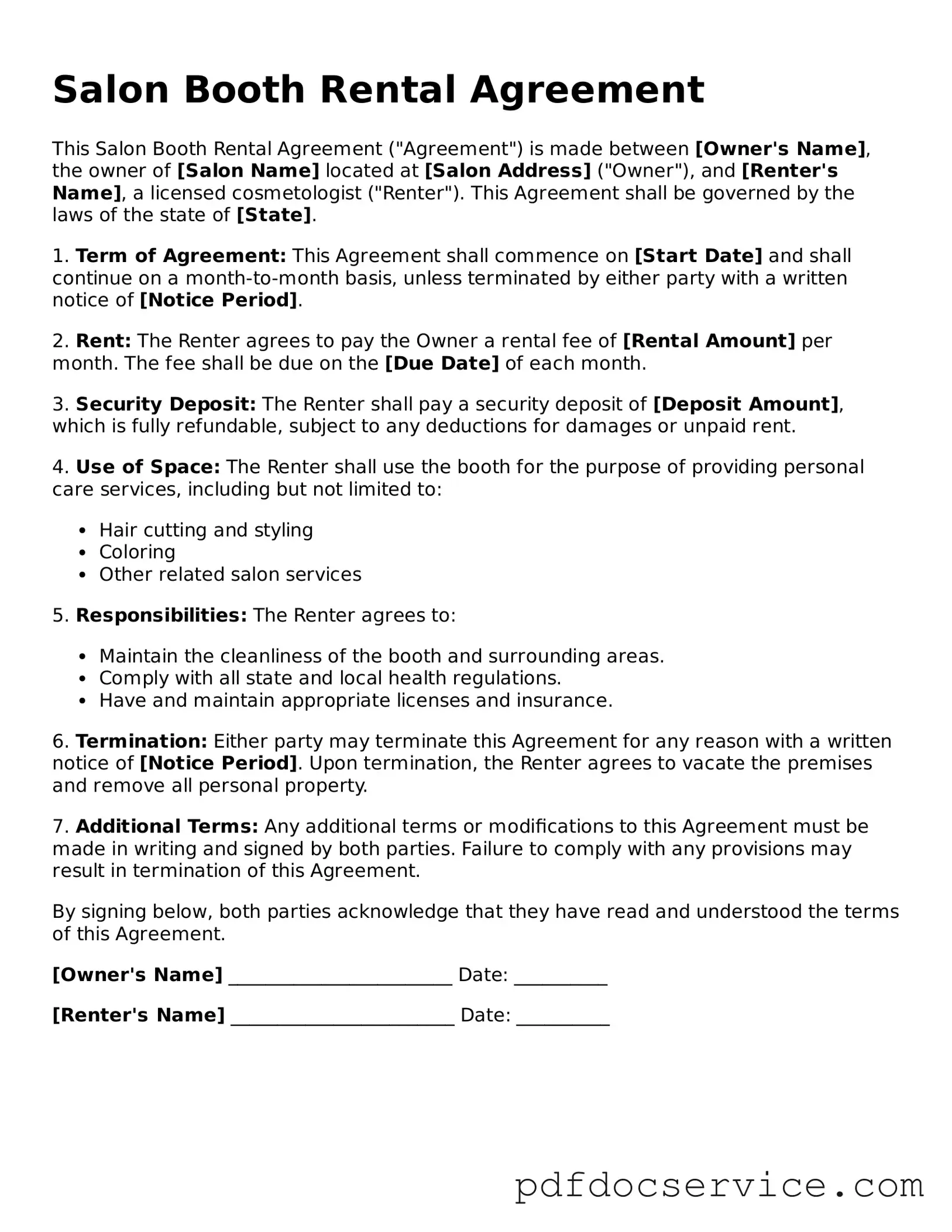Blank Salon Booth Rental Agreement Form
The Salon Booth Rental Agreement is a legal document that outlines the terms and conditions between a salon owner and a stylist who rents a booth within the salon. This agreement serves to protect both parties by clearly defining responsibilities, payment terms, and other essential details. Understanding this form is crucial for ensuring a smooth and professional working relationship in the beauty industry.
Open Salon Booth Rental Agreement Editor

Blank Salon Booth Rental Agreement Form
Open Salon Booth Rental Agreement Editor

Open Salon Booth Rental Agreement Editor
or
Get Salon Booth Rental Agreement PDF
Finish the form now and be done
Finish Salon Booth Rental Agreement online using simple edit, save, and download steps.